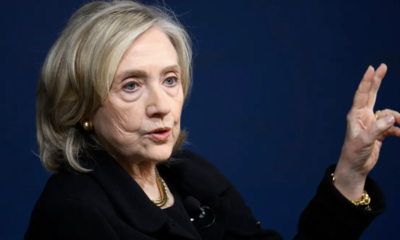Business
RBI tries to cushion impact of second COVID-19 wave on MSMEs and small businesses
The Reserve Bank of India has announced a slew of measures for MSMEs and small businesses in an effort to offset the economic impact of the second COVID-19 wave. RBI Governor Shaktikanta Das said the resurgence of the COVID-19 pandemic in India and the associated containment measures adopted at local levels have created new uncertainties and impacted the nascent economic revival that was taking shape.
As the second wave of infections wreaks havoc in India, the most vulnerable categories of borrowers are individual borrowers, small businesses and MSMEs. Das said individuals and small businesses and MSMEs having aggregate exposure of up to Rs 25 crore, and who have not availed restructuring under any of the earlier restructuring frameworks, and who were classified as “Standard” as on March 31, 2021, will be eligible to be considered under Resolution Framework 2.0.
Restructuring under this framework may be invoked up to September 30, 2021, and will have to be implemented 90 days after invocation. Borrowers, who have availed restructuring under Resolution Framework 1.0, where the resolution plan permitted a moratorium of fewer than two years, lending institutions are being allowed to use this window to modify such plans to the extent of increasing the period of moratorium and extending the residual tenor up to a total of two years.
Moreover, to incentivize credit flow to micro, small and medium enterprise (MSME) borrowers, scheduled commercial banks in February 2021 were allowed to deduct credit disbursed to new MSME borrowers from their net demand and time liabilities for calculation of the cash reserve ratio.
Also Read: RBI announces liquidity window of Rs 50,000 crore for COVID-related healthcare infrastructure
“To further incentivize the inclusion of unbanked MSMEs into the banking system, this exemption currently available for exposures up to Rs 25 lakh and for credit disbursed up to fortnight ending October 1, 2021, is being extended till December 31, 2021,” Das said. Banks and NBFCs are also being permitted, as a one-time measure to review the review the working capital cycle, and margins etc.











































Pingback: India reaches out to American pharma companies to invest in pharmaceutical and medical devices sector | The Plunge Daily